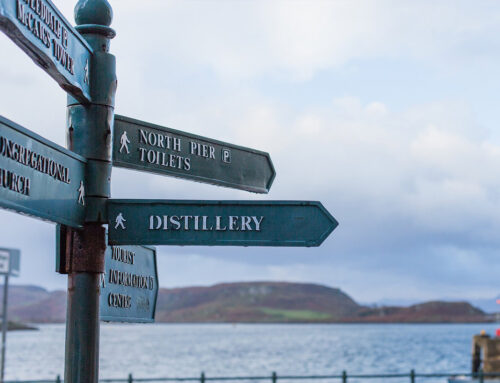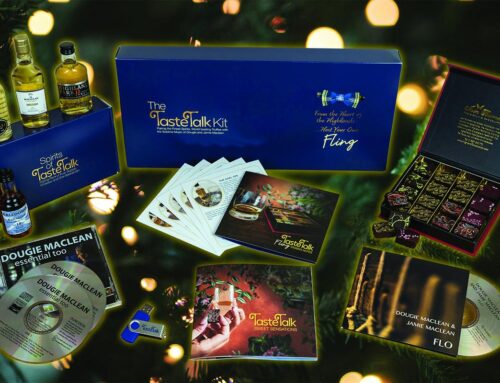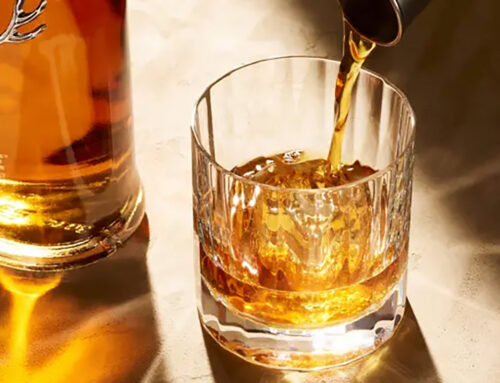Whisky Tasting at Home
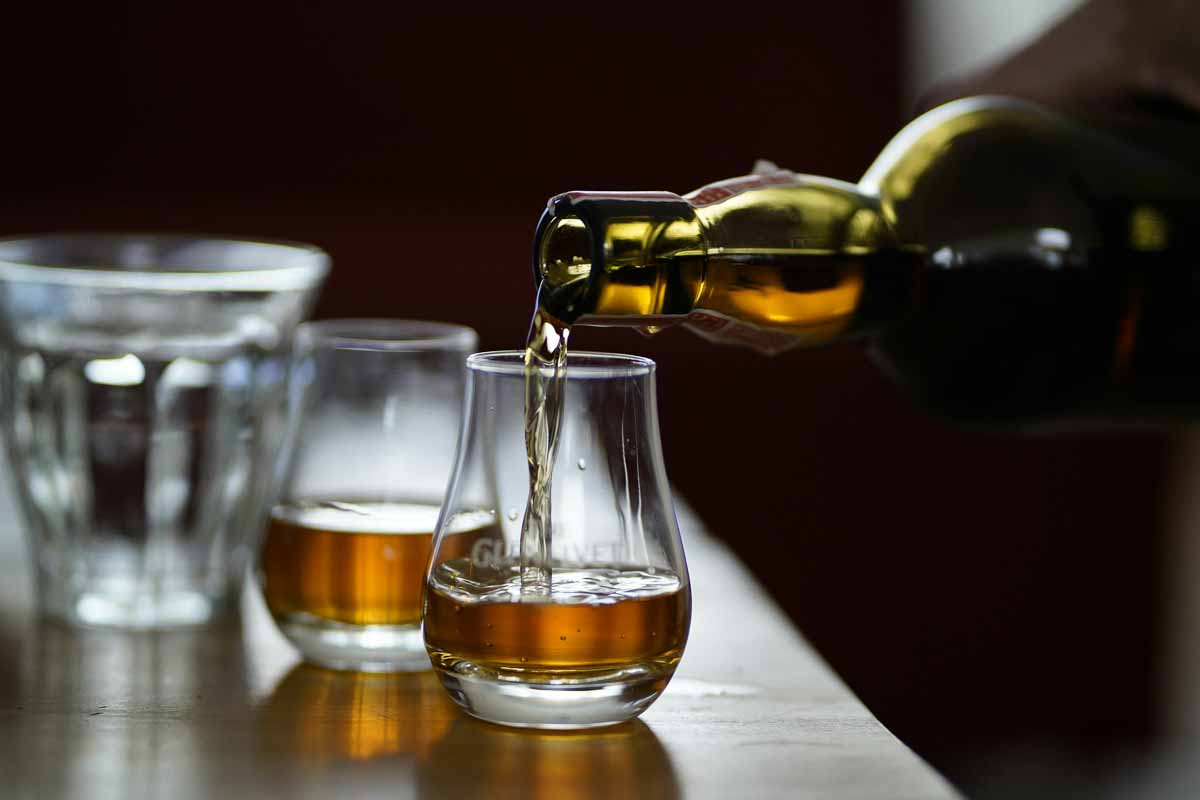
Whisky tasting at home is a delightful way to explore the rich and diverse world of this beloved spirit. Hosting a whisky-tasting event allows you to enjoy a range of flavours and aromas, all within the comfort of your own home. Whether you’re a seasoned aficionado or a curious novice, a well-planned whisky tasting can be both educational and enjoyable. However, it’s essential to remember that all participants must be of legal drinking age to partake in this experience.
Preparing for a Whisky Tasting
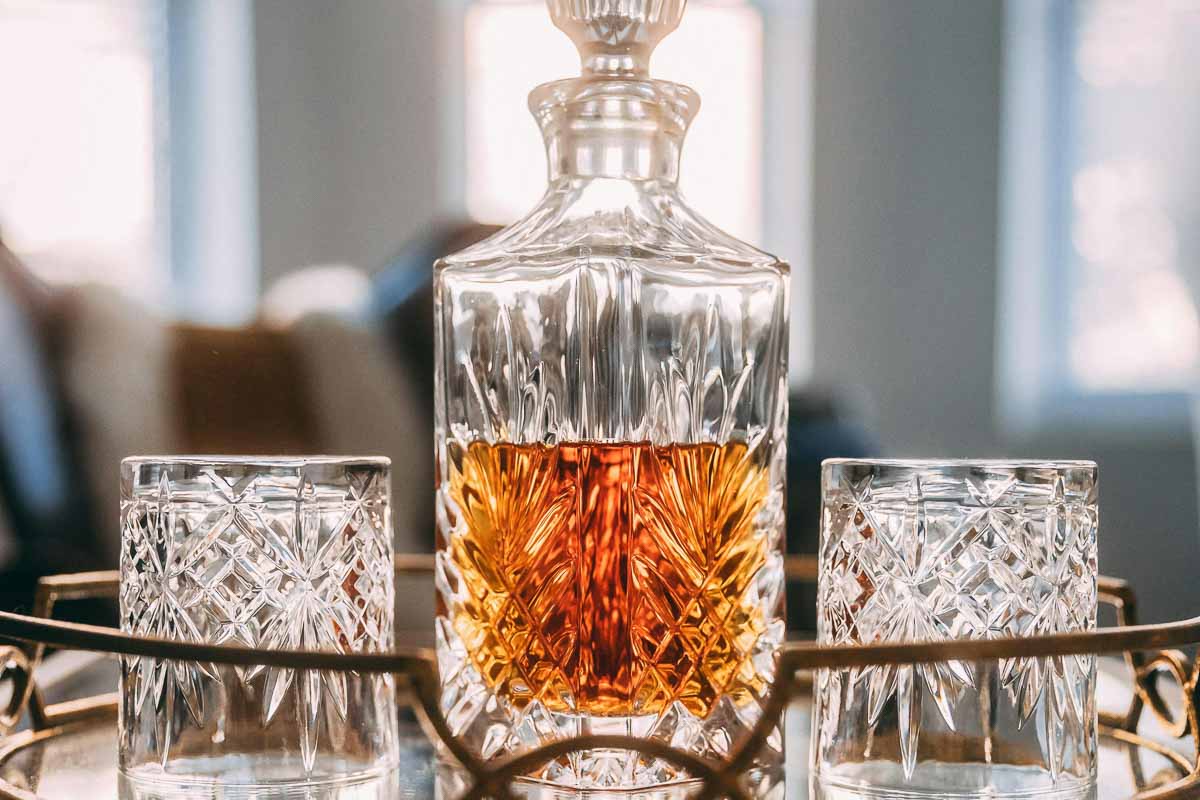
Whisky Tasting at Home: Choosing the Whiskies
Selecting the right whiskies is crucial for a successful tasting. Here are some detailed considerations and recommendations to help you curate an impressive and diverse line-up:
1. Scotch Whisky
- Single Malt Scotch: Made from malted barley at a single distillery, single malt scotch offers a wide range of flavours, from the peaty and smoky whiskies of Islay to the light and floral notes of the Highlands.
- Blended Scotch: A blend of malt and grain whiskies, this type often presents a more balanced and approachable flavour, making it a great choice for beginners.
2. Bourbon
- Classic Bourbon: Made primarily from corn and aged in new charred oak barrels, bourbon typically features sweet, rich flavours with notes of vanilla, caramel, and oak.
- High-Rye Bourbon: With a higher percentage of rye in the mash bill, this bourbon variant offers spicier, more robust flavours.
3. Rye Whiskey
- American Rye Whiskey: Made from at least 51% rye, this whiskey is known for its bold, spicy character, often with notes of black pepper, cinnamon, and nutmeg.
- Canadian Rye Whisky: Often smoother and lighter than its American counterpart, Canadian rye can offer a more delicate, nuanced tasting experience.
Exploring Age-Based Possibilities
Whiskies of different ages can showcase how maturation affects flavour and complexity:
- Young Whiskies (3-5 years): Often more vibrant and spirited, these whiskies can have more pronounced grain and youthful fruit notes.
- Middle-Aged Whiskies (6-12 years): This range often strikes a balance between youthful exuberance and mature complexity, offering well-rounded flavours and a harmonious profile.
- Aged Whiskies (15+ years): Older whiskies tend to have deeper, more intricate flavours, with enhanced smoothness and layers of complexity from extended interaction with the oak cask.
Special Offers and Distillery Selections
Take advantage of special offers and limited editions from various distilleries to add unique and exclusive whiskies to your tasting:
- Distillery Editions: Many distilleries release special editions or single-cask bottlings that highlight unique aspects of their production process.
- Seasonal Releases: Look out for whiskies released during specific seasons or for special occasions, as they can provide a unique tasting experience.
- Tasting Sets: Some distilleries and retailers offer curated tasting sets that include a selection of their whiskies, providing a convenient way to sample a range of their offerings. Take for example our Taste Talk Kit which comes with a box of 20 chocolate truffles from The Highland Chocolatier, five superior malt whiskies and gin paired with the truffles, a leaflet describing your Kit’s selection of truffles and spirits, a film guiding guests through the experience, plus a double-disc compilation CD with some of the finest tracks from the many albums of Dougie MacLean and ‘Flo’, a brand-new album for Taste Talk by Dougie MacLean and his talented son Jamie MacLean.
Geographical Diversity
Include whiskies from across the world and different regions to showcase the influence of terroir and regional production techniques:
- Scotland: Renowned for its scotch whisky, Scotland offers diverse regional styles, from the smoky Islay malts to the rich and fruity Speyside whiskies.
- Ireland: Known for its smooth, triple-distilled whiskeys, Ireland’s offerings can include both single malts and unique blends.
- USA: In addition to bourbon and rye, American whiskey includes unique regional styles like Tennessee whiskey and small-batch craft distilleries.
- Canada: Explore the rich tradition of Canadian rye whisky, known for its smooth, approachable profile.
- Japan: Japanese whisky, influenced by Scotch production methods, often features a delicate, refined profile with a focus on craftsmanship and purity.
By selecting a diverse range of whiskies that includes various types, ages, special offers, and regional styles, you can create a comprehensive tasting experience that highlights the rich complexity and versatility of whisky. This thoughtful curation will allow your guests to appreciate the distinct characteristics of each type and gain a deeper understanding of the world of whisky.
Choosing the Whiskies
Selecting the right whiskies is crucial for a successful tasting. Here are some detailed considerations and recommendations to help you curate an impressive and diverse line-up:
1. Scotch Whisky
- Single Malt Scotch: Made from malted barley at a single distillery, single malt scotch offers a wide range of flavours, from the peaty and smoky whiskies of Islay to the light and floral notes of the Highlands.
- Blended Scotch: A blend of malt and grain whiskies, this type often presents a more balanced and approachable flavour, making it a great choice for beginners.
2. Bourbon
- Classic Bourbon: Made primarily from corn and aged in new charred oak barrels, bourbon typically features sweet, rich flavours with notes of vanilla, caramel, and oak.
- High-Rye Bourbon: With a higher percentage of rye in the mash bill, this bourbon variant offers spicier, more robust flavours.
3. Rye Whiskey
- American Rye Whiskey: Made from at least 51% rye, this whiskey is known for its bold, spicy character, often with notes of black pepper, cinnamon, and nutmeg.
- Canadian Rye Whisky: Often smoother and lighter than its American counterpart, Canadian rye can offer a more delicate, nuanced tasting experience.
Exploring Age-Based Possibilities
Whiskies of different ages can showcase how maturation affects flavour and complexity:
- Young Whiskies (3-5 years): Often more vibrant and spirited, these whiskies can have more pronounced grain and youthful fruit notes.
- Middle-Aged Whiskies (6-12 years): This range often strikes a balance between youthful exuberance and mature complexity, offering well-rounded flavours and a harmonious profile.
- Aged Whiskies (15+ years): Older whiskies tend to have deeper, more intricate flavours, with enhanced smoothness and layers of complexity from extended interaction with the oak cask.
Special Offers and Distillery Selections
Take advantage of special offers and limited editions from various distilleries to add unique and exclusive whiskies to your tasting:
- Distillery Editions: Many distilleries release special editions or single-cask bottlings that highlight unique aspects of their production process.
- Seasonal Releases: Look out for whiskies released during specific seasons or for special occasions, as they can provide a unique tasting experience.
- Tasting Sets: Some distilleries and retailers offer curated tasting sets that include a selection of their whiskies, providing a convenient way to sample a range of their offerings. Take for example our Taste Talk Kit which comes with a box of 20 chocolate truffles from The Highland Chocolatier, five superior malt whiskies and gin paired with the truffles, a leaflet describing your Kit’s selection of truffles and spirits, a film guiding guests through the experience, plus a double-disc compilation CD with some of the finest tracks from the many albums of Dougie MacLean and ‘Flo’, a brand-new album for Taste Talk by Dougie MacLean and his talented son Jamie MacLean.
Geographical Diversity
Include whiskies from different regions to showcase the influence of terroir and regional production techniques:
- Scotland: Renowned for its scotch whisky, Scotland offers diverse regional styles, from the smoky Islay malts to the rich and fruity Speyside whiskies.
- Ireland: Known for its smooth, triple-distilled whiskeys, Ireland’s offerings can include both single malts and unique blends.
- USA: In addition to bourbon and rye, American whiskey includes unique regional styles like Tennessee whiskey and small-batch craft distilleries.
- Canada: Explore the rich tradition of Canadian rye whisky, known for its smooth, approachable profile.
- Japan: Japanese whisky, influenced by Scotch production methods, often features a delicate, refined profile with a focus on craftsmanship and purity.
By selecting a diverse range of whiskies that includes various types, ages, special offers, and regional styles, you can create a comprehensive tasting experience that highlights the rich complexity and versatility of whisky. This thoughtful curation will allow your guests to appreciate the distinct characteristics of each type and gain a deeper understanding of the world of whisky.
Gathering Supplies
To ensure a seamless tasting experience, gather the necessary supplies:
- Tasting Sets and Tasting Cards: These will help guide the tasting process and allow guests to jot down their impressions.
- Glassware: Use proper whisky glasses, such as Glencairn or tulip-shaped glasses, to enhance the tasting experience.
- Snacks: Complement the whiskies with cheese, crackers, nuts, and chocolate to cleanse the palate and highlight different flavour profiles.
Setting the Scene
Creating the right ambience is essential for a successful tasting event:
- Ensure the tasting area is well-lit and comfortable.
- Arrange the bottles and glasses neatly.
- Provide water and snacks to prevent guests from tasting on an empty stomach.
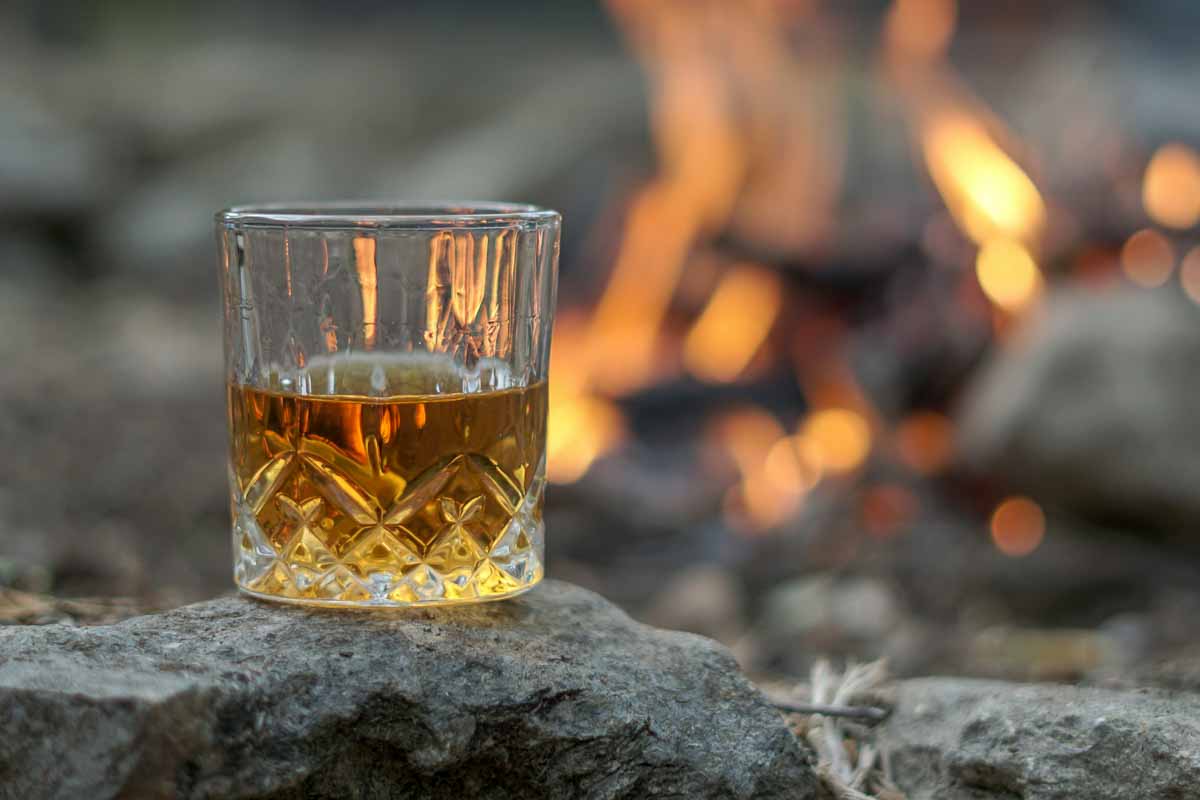
Conducting the Tasting
Tasting Guide A well-structured tasting guide is essential:
- Overview of the Tasting Process: Explain the steps involved in whisky tasting.
- Blind Tasting Methods: Encourage blind tastings to focus solely on the flavours and aromas.
- Engaging the Taste Buds and Palate: Guide guests on how to fully engage their senses during the tasting.
Tasting Process Follow these steps for an effective tasting:
- Look: Observe the colour and clarity of the whisky.
- Smell: Swirl the glass and inhale deeply to appreciate the aromas.
- Sip: Take a small sip and let it roll over your tongue to detect different flavours.
- Savour: Reflect on the taste and finish, noting any lingering flavours.
Fun and Educational Elements Enhance the tasting with engaging activities:
- Share interesting facts about each whisky.
- Encourage discussions among guests about their impressions.
- Incorporate themes or special occasions to make the event more memorable.

Additional Considerations
Health and Safety Ensure a safe and responsible tasting environment:
- Encourage moderation and responsible drinking.
- Provide plenty of water and snacks.
- Plan for safe transportation options for guests who may need them.
Customising the Experience Tailor the tasting to suit different preferences and levels of knowledge:
- Offer a range of whiskies to cater to varied tastes.
- Include other spirits like rum, gin, or beer for a more diverse tasting experience.
- Adapt the event to accommodate both beginners and experienced whisky enthusiasts.
Hosting a whisky tasting at home is a fantastic way to explore the world of whisky with friends and family. By following these guidelines, you can create an enjoyable and educational experience that celebrates the rich flavours and aromas of whisky. Whether it’s a casual get-together or a special occasion, a well-planned whisky-tasting event is sure to leave a lasting impression on your guests. Cheers!
